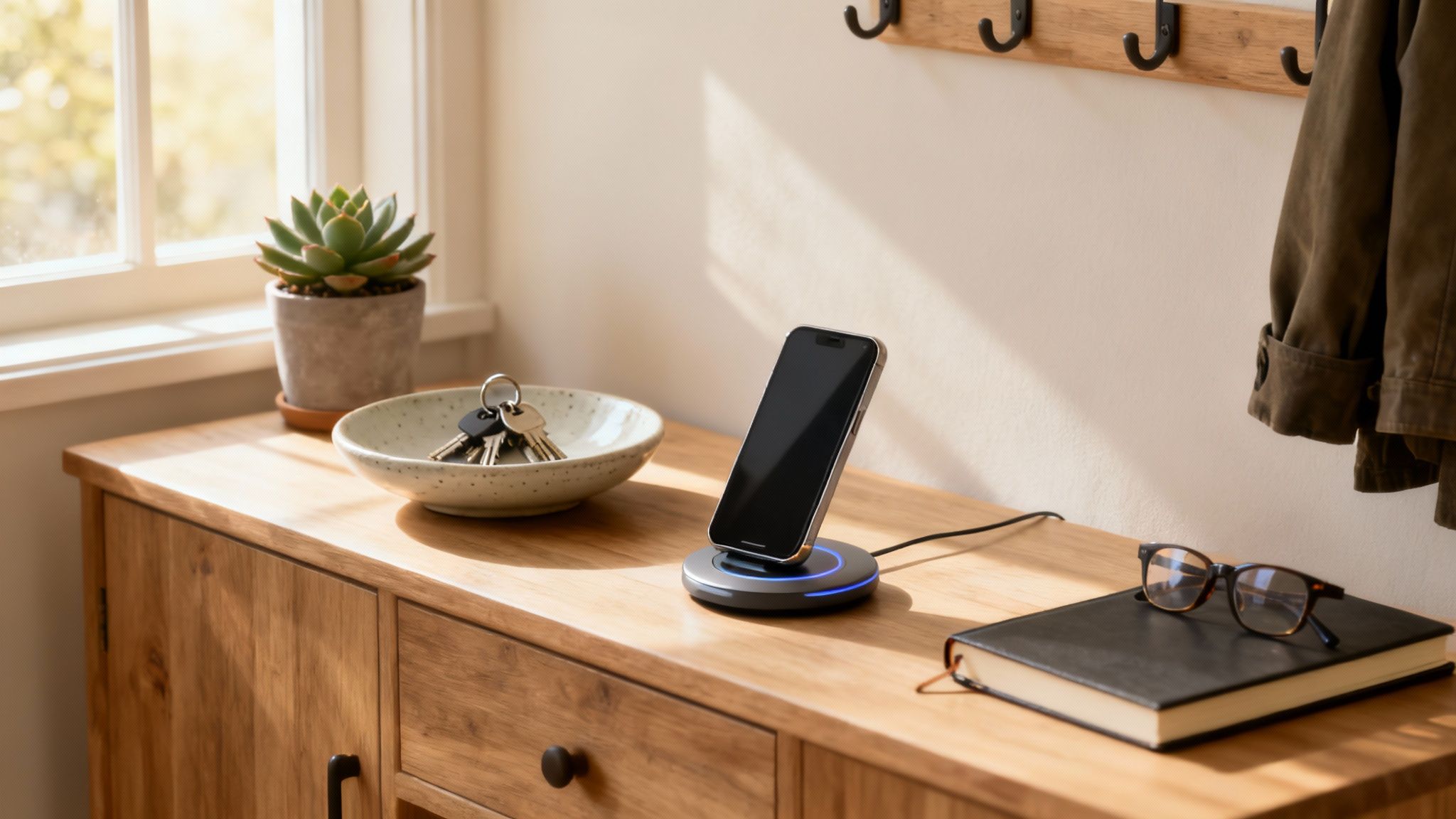It’s commonly assumed that a person with ADHD has zero chance of being successful, but this is a myth—and a hurtful one at that. But while it may not apply to every ADHDer, a 2020 study found a bit of truth to the stereotype, where students with ADHD had lower academic performance than their neurotypical classmates.1
While ADHD can most certainly complicate things in the classroom at any age, it’s still totally possible for us to achieve academic success. With the right skills and enough support, we can ace exams, pass courses, and—eventually—graduate.
Too long; didn’t read
- Statistically speaking, ADHDers have more struggles with performance and success in academics than their neurotypical classmates.
- But - you can do well in school with ADHD... with a bit of extra work.
- Be resourceful: stick to a routine, manage your meds, and ask for help.
- Most schools, colleges, and even some workplaces will accommodate you.
Perfectionism and overwhelm can cause ADHDers to burn out. If this is you, make sure you’re taking care of yourself. Good grades are important, but so is your overall health. Be nice to yourself, you’re doing the best you can.

What’s going on inside the ADHD brain?
Although scientists don’t know the exact cause of ADHD, they have some assumptions.
ADHD brains do their own thing
Researchers understand that the frontal lobe is affected in people with ADHD. This is the same part of the brain that regulates executive functioning skills, such as organization, paying attention, and controlling impulses…among other things.
ADHD brains can be perfectionists
Many ADHDers are hard on themselves, and oftentimes put excess effort into avoiding mistakes. Because of this, it can take longer to complete tasks, which can later lead to chronic task avoidance and feelings of overwhelm.
Keep in mind, that perfection isn’t a destination. It’s not realistic. Have you ever met a perfect person? Me neither.
Keep doing your best and try not to be so hard on yourself (it’s easier said than done, I know).
ADHD brains live rent-free at procrastination station
Do you find yourself putting off important schoolwork or waiting until the last minute to study for tomorrow’s exam? Procrastination is normal for ADHDers. Or maybe you have a project you know you need to do, but you just can’t seem to get yourself to do it.
This task paralysis can be extremely frustrating and you get nowhere fast.
ADHD and education
ADHD symptoms that can affect academics
There are three ADHD subtypes, each with unique sets of symptoms, many of which can interfere with academic performance.
These can include:
- Inattention
- Distractibility
- Difficulty following directions
- Trouble staying organized
- Impatience
- Extreme restlessness

Highly-gifted ADHDers
We’ve talked a lot about the negatives. But ADHDers can achieve good grades or be considered “highly gifted”, which is often referred to as being ‘twice-exceptional’ or ‘2E’.
But it’s important to note that a high IQ score doesn’t lessen the impact that ADHD can have on your life. Twice-exceptional ADHDers have the same struggles as an average ADHDer. A 2019 study had supporting conclusions, stating that giftedness does not significantly influence the severity of symptoms.2
College students with ADHD
Once we hit college, we’re on our own (for the most part). The support we may have had in high school is no longer available to the same extent. We’re responsible for reaching out for help, and that can present an entirely new set of problems… but it doesn’t have to.
Per the Americans with Disabilities Act (ADA), public universities are required to have appropriate accommodations for students who need them, including students with ADHD.
💡 Pro tip! You may have to show a doctor’s note or some form of verification of your ADHD.
7 tips for succeeding in school with ADHD

1. Plan
Although it may be scary, planning is key. Make a to-do list. (Yes, I'm serious. Please don't throw things at me.)
Find a planner that works for you, and more importantly, use it how it works for you. There is no “right way” to use a planner, so take that pressure off of yourself right now. The key is to plan your studying and schoolwork so you can focus and get stuff done.
2. Routine, routine, routine!
Did I mention routines?!
I know what you’re thinking: there is so much pressure to maintain a routine, let alone set one up!
You’re not alone in that thinking. It all goes back to that perfectionism we talked about earlier. Take it easy on yourself and start small.
Start with a morning routine. Think of a few things you already do every day. Maybe that’s brushing your teeth or having a cup of coffee. Look! You have a routine! Go you!
3. Prioritize and manage your time
Once you make your to-do list, separate it into priorities. Put the most important tasks at the top and start there.
What time of day do you perform at your best?
Try to do your most intense work then. Set a timer and work until the time is up, then do something else. This will (hopefully) steer you away from boredom and procrastination.
4. Ask for help
Support is key! Check with your academic counselor to see what resources are available.
Find a therapist that specializes in ADHD and set recurring appointments with them. They can give you some insight on ways to improve and tips specific to your life.
Join support groups in your area or online.
5. Manage your medication
If you’re on ADHD meds, you probably know that your medication is crucial for symptom management. Make sure you're staying on top of it.
Set reminders to take your meds and to schedule regular appointments with your doctor.
6. Focus on your strengths
We can get caught up on what’s wrong with us, instead of focusing on the positives. Make a list of things you’re good at. Everyone is good at something. If you don’t think you are, then maybe you just haven’t found your “something” quite yet.
That’s OK.
7. Pat yourself on the back already!
My guess is that you’re doing the best you can. Don’t beat yourself up over a mistake or some time you wasted watching Netflix. Every once in a while, treat yourself. Go out to eat at that new restaurant or buy some chocolate (or whatever you’re into). You deserve it!
For help with all of these and more, check out the Inflow app.
Frequently asked questions:

Can someone with ADHD do well in school?
Yes! ADHDers are more than capable of academic success. They may need to work harder than others in order to achieve a good outcome, but that doesn't mean it's impossible.
What do students with ADHD struggle with?
Every student has the potential to struggle with a variety of executive functions and responsibilities whether they have ADHD or not. However, students with ADHD are more likely to struggle with the following school-related tasks:
- Remembering to complete homework and bring it back to school
- Sustaining attention during lectures
- Excelling on exams that require a strong working memory
- Maintaining and organized desk, workspace, or locker
Can someone with ADHD be smart?
Yes!
There is currently no evidence that people with ADHD—on average—have an IQ that is drastically different from that of the average neurotypical. In other words, ADHD doesn't 'make you unintelligent', but it also doesn't 'make you smart'.
Can people with ADHD go to college?
Absolutely! College students with ADHD should be encouraged to check out their school's Disability Support Services and request accommodations as soon as possible.
Challenges at the university level may be much steeper than previous academic challenges, but with the right support, ADHDers can graduate just like anyone else.

.jpeg)






